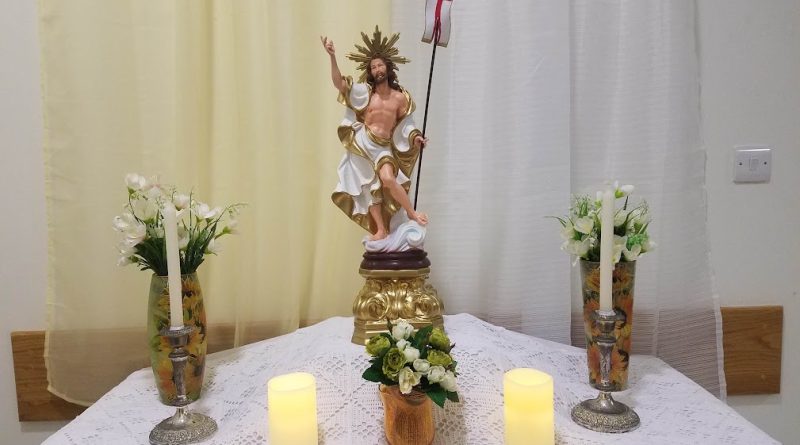The Easter Sequence Victimae Paschali Laudes (1)
Upon visiting Ward 1 of the Sir Anthony Mamo Oncology Centre I came across a fabulous statue of the Resurrected Christ. This magnificent statue spoke volumes to me. Most of all it took me to the great Easter Sequence Victimae Paschali Laudes which we sing during the Easter Octave.
The Easter Sequence is most likely the work of Wipo of Burgundy, a chaplain to the Holy Roman Emperor Conrad II. It was the 1570 Roman Missal which demands its usage from Easter Sunday till Easter Saturday.
| Víctimae Pascháli laudes ímmolent Christiáni. Agnus redémit oves: Christus ínnocens Patri reconciliávit peccatóres. | Let Christians sacrifice praise To the Paschal Victim. The Lamb has redeemed the sheep! Christ, who is innocent, has reconciled sinners To the Father. |
We notice an interesting paradox in the first two stanzas. Christ destroys our death by dying and restoring our life by rising. Christ is the slayed (Latin immolatum) victim as occurs in the Hebrew Passover’s bloody sacrifice of lamb. Hence, Christ is the Paschal Victim and Lamb. This theme is the highlight of the Easter Sunday Mass. In the Epistle, Alleluia, Preface and Communion Verse we encounter the affirmation: “Pascha nostrum immolatus est Christus – Christ our Pasch is sacrificed”. The Allelulia says the Christ our Pasch is sacrificed whereas the Sequence retorts that Christians should [therefore] offer sacrifice to the Paschal Victim.
What does it mean for me that Christ has been sacrificed for my salvation? Am I appreciating this wonderful act by Jesus? What sort of sacrifice am I giving to Jesus, the Paschal Victim, to show Him that I truly acknowledge what He has done for me? What is this kind of sacrifice? Could it be that what Jesus wants from me is to give Him my will and espouse it to His Will? What does it say to me the passage from the Letter to the Hebrews: Consequently, when Christ came into the world, he said, “Sacrifices and offerings thou hast not desired, but a body hast thou prepared for me; in burnt offerings and sin offerings thou hast taken no pleasure. Then I said, `Lo, I have come to do thy will, O God,’” (Heb 10:5-7).
Lord Jesus you have redeemed us by uniting your will to that of the Father help us unite our will with yours for our and the world’s salvation. Amen.
Fr Mario Attard OFM Cap





